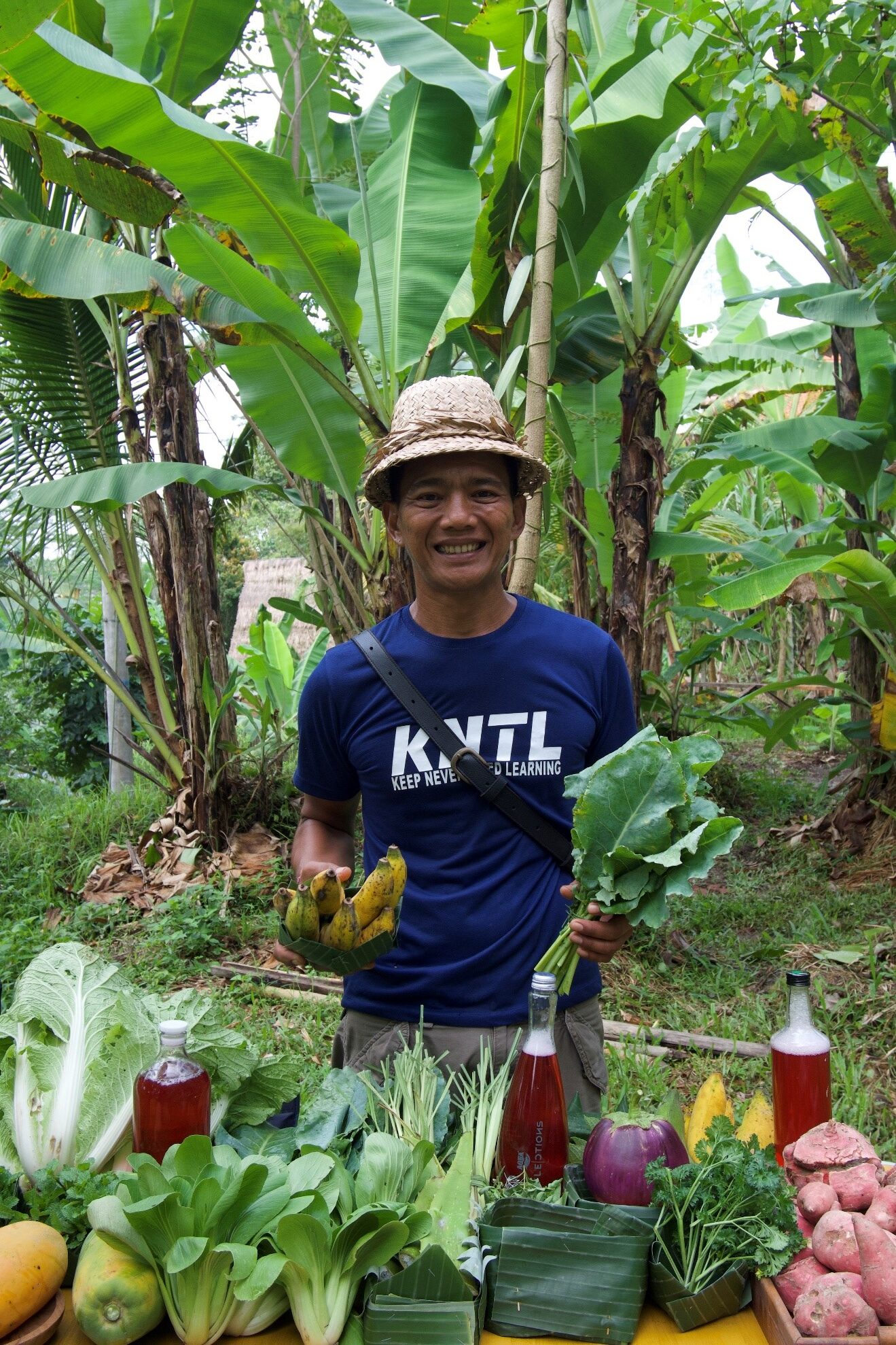In the heart of Bali, nestled amidst emerald canopies and whispering rice paddies, lies Ubud—a sanctuary for seekers of culture, tranquillity, and nature’s quiet wisdom. The town hums with the melodies of traditional gamelan, the scent of frangipani drifting through the air, and the spirit of artisans crafting, cooking, and cultivating. Yet beneath its rich tapestry of artistry and spirituality, a quieter revolution is unfolding—a movement towards sustainability and permaculture, where the land is not merely taken from, but nurtured in return.
Permaculture: A Philosophy Rooted in the Earth
 Permaculture is more than a method of farming—it is a philosophy, a conscious way of living that embraces ecological harmony and self-sufficiency. In Ubud, where nature’s rhythm dictates the pace of life, permaculture finds a natural home. Farms here are not rigid grids of soil but thriving ecosystems—living tapestries woven together by coconut palms, banana trees, and medicinal herbs.
Permaculture is more than a method of farming—it is a philosophy, a conscious way of living that embraces ecological harmony and self-sufficiency. In Ubud, where nature’s rhythm dictates the pace of life, permaculture finds a natural home. Farms here are not rigid grids of soil but thriving ecosystems—living tapestries woven together by coconut palms, banana trees, and medicinal herbs.
Unlike industrialised agriculture that exhausts the land, permaculture whispers of renewal, echoing the ancestral wisdom that has sustained Bali’s farmers for centuries. It nurtures the soil, embraces biodiversity, and honours the sacred balance between humanity and the earth.
To wander these farms is to step into a world untamed yet meticulously designed—where vines climb freely and ponds teem with life, where compost regenerates the land and water is revered like gold. It is a lesson, a revelation, an invitation to rethink how we tread upon this planet.
A Journey Through Ubud’s Sustainable Farms
For those seeking more than mere observation, many of Ubud’s farms offer immersive experiences—guided tours where visitors step into the rhythm of the land, hands stained with soil, hearts filled with reverence for nature’s quiet magic.
As part of Bali cultural tours, one can venture into the heart of permaculture farms, watching farmers tend to the earth with a practised grace, their movements fluid and unhurried. Guests may learn how Balinese communities harmonise their agricultural traditions with sustainable innovations, blending ancient wisdom with modern ecological principles.
Some farms even offer an overnight stay—an opportunity to wake to the symphony of crickets and rustling leaves, to partake in the morning’s harvest, and to savour the fruits of true sustainable living.
The Vibrance of Ubud’s Organic Farmers Markets

No exploration of Ubud’s sustainability movement would be complete without a visit to its Organic Farmers Markets. These bustling spaces are not mere trading grounds but vibrant gatherings, where growers, artisans, and conscious consumers come together to celebrate ethical food and mindful living.
Here, one finds tropical fruits in hues so vivid they seem almost surreal—dragon fruit blushing with crimson, mangosteens rich with purple velvet skins. There are homemade jams, fresh herbal teas, coconut-infused skincare, and fragrant, hand-ground spices, each item carrying the spirit of the land from which it was harvested.
By supporting these markets, visitors do not merely purchase food—they invest in local farmers, protect traditional farming practices, and encourage a more sustainable economy that respects the earth rather than exploits it.
Cooking Classes: A Symphony of Slow Living
There is something deeply poetic about preparing food that was harvested mere hours before—ingredients still humming with life, their essence intact. A Bali cooking class offers travellers the chance to bridge the gap between farm and table, to transform vibrant produce into nourishing meals through the gentle ritual of cooking.
In these workshops, traditional Balinese cuisine takes centre stage—herbs ground in stone mortars, coconut milk simmering over open flames, banana leaves wrapping fragrant rice like an offering. Each technique is infused with patience, each meal a meditation on sustenance and gratitude.
Yet beyond the artistry of food preparation, these classes offer a lesson in slow living—a reminder to linger over meals, to embrace the act of creation, to appreciate the nourishment given by both the hands of farmers and the generosity of the land.
Eco-Conscious Stays & Retreats
 In a world that rushes forward with relentless momentum, Ubud invites travellers to pause. Eco-lodges and sustainable retreats scattered across the countryside embody this philosophy, providing sanctuaries where one can slip into the embrace of nature, shedding the noise of modern life like a discarded cloak.
In a world that rushes forward with relentless momentum, Ubud invites travellers to pause. Eco-lodges and sustainable retreats scattered across the countryside embody this philosophy, providing sanctuaries where one can slip into the embrace of nature, shedding the noise of modern life like a discarded cloak.
Many of these accommodations follow permaculture principles—built from bamboo and reclaimed wood, powered by solar energy, nourished by rainwater collection systems. To stay here is to awaken to mist-laden hills, to rest beneath thatched roofs woven by hand, to fall asleep to the lullaby of the forest.
Guests are encouraged to partake in mindful activities—meditation beneath the banyan trees, yoga overlooking rice paddies, herbal workshops that deepen one’s understanding of nature’s medicinal gifts. It is a return to simplicity, a reconnection with the essence of being.
Tegallalang Rice Paddies: The Poetry of Tradition
Amidst Ubud’s embrace of permaculture, one cannot overlook its most iconic landscape—the Tegallalang Rice Paddies, an undulating sea of green that cascades down terraced slopes, sculpted over generations.
These paddies are more than breathtaking scenery; they are an embodiment of the Subak system, a centuries-old irrigation method that speaks of cooperation and balance. Farmers here do not merely cultivate rice; they uphold a heritage that intertwines community, nature, and spirituality.
As dawn spreads its golden fingers over the terraces, one can witness farmers at work—hands deftly planting, feet sinking into the water-laden soil, their movements in harmony with a tradition passed down through countless ancestors. It is a reminder that sustainability is not always innovation—it is often found in preserving what has long existed, in honouring the old ways.
Conclusion: A Future of Responsible Travel
To travel consciously is to step lightly upon the earth, to recognise that every choice we make leaves an imprint. Ubud, with its thriving permaculture Bali movement, invites travellers not merely to observe but to participate—to engage with the land, to learn from its farmers, to embrace a lifestyle that nourishes rather than depletes.
By supporting organic markets, immersing in farm-to-table experiences, and choosing eco-conscious retreats, visitors contribute to a future where tourism does not come at the cost of the environment.
Ubud remains a haven of artistry and spirituality, but within its heartbeat lies another rhythm—the quiet, enduring pulse of sustainability, calling travellers to listen, to learn, to protect.
